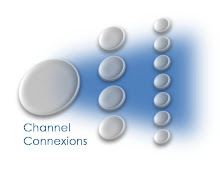It is time to get rid of the SWAG. I don’t mean how the Urban Dictionary defines SWAG (“the way one carries their self”) or the “Stuff We All Get”, sometimes called “chotchkies”. What I mean is let’s get rid of the…
Silly Wild Ass Guess
With all of the information available to us, why is it that the SWAG has become common business lingo? I can’t imagine what compels a person to proclaim, “I have a SWAG” or “It’s just a SWAG” in front of their peers, subordinates, superiors, or even their customers. Yet, as I am sure you can attest, we hear this all the time. It is time to kill the SWAG!
I was reading through the 2009 Fortune 400 and it occurred to me that in virtually every situation the wealth created was due to hard work, persistence, timing, and/or brilliance. I seriously doubt that any successful business person made their wealth by guessing. Naturally, some were lucky or born with the right last name, but the actual wealth created was not the result of a SWAG. Their “swag” did not come from a S.W.A.G.
Our job as marketing leaders and managers is to present and implement the best solutions possible. We assess and mitigate risk. There is no such thing as a guarantee, so we tap our resources and make decisions. We do not guess or leave the result up to chance. Channel leaders make these decisions every day. Luckily we have so much information at our disposal that the need (or temptation) to guess is unnecessary.
Perhaps this post should have preceded the last two that I wrote about intuition, experience, and the heuristic method. We use processes and methods to help us gather, organize, and assess opportunities and risk. These processes apply to absolute, quantitative data, as well as instinct, intuition, gut-feel, and historical bias. The result is that we can present an idea or solution without the SWAG.
Who is with me? Let’s kill the SWAG!!!
Friday, October 9, 2009
Kill the SWAG
Subscribe to:
Post Comments (Atom)




4 comments:
We called it Scientific Wild Ass Guess in the Air Force!
My gut tells me that the SWAG has become obsolete in this information age. However, my experience as an analyst covering collaboration and productivity tools has taught me the value of adding tools to toolkits, rather than dropping tools. I agree with you that what people call a SWAG are actually informed quick judgements that are valuable and should not be called a SWAG. A theories or hypothesis that can be tested is a better label.
Thoughts?
Mark Levitt
www.timetoinnovate.blogspot.com
SWAG is a new comment to me. I have never heard this before, maybe it is a regional thing.
One thing I notice here is that you are talking about "wealth" and the ways of the Affluent. I am wondering if you are marketing for the affluent or want to. In the grand scheme of things I think there are very few people/businesses that are truly affluent.
Building wealth is not the same thing as building a successful company although when these two places meet it is great, but rare.
Wealth building comes from a few of the items you mentioned - hard work & persistence. Timing maybe, but brilliance is questionable. Most millionaires & deca-millionaires build their wealth over time through restraint and controlled habits. Basically living below their means and certainly not keeping up with the Jones'.
So my point is I am a little confused about the use of wealth in this article.
I do however agree marketing in this day and age is completely different than it was just 10 years ago. We are now getting systems that help us track and measure results much better than anything we have ever scene in the past. More importantly it is mostly affordable enough that small firms are able to now compete with large global agencies.
This is great for businesses of all sizes because now we can make those educated and wise choices on how to reach the target audience and also show why things did or didn't work.
For new companies, and new marketers for that matter, they have to start somewhere. So they will use guessing. I see a lot of companies that decide they can do it on their own. "I mean really how hard can marketing be. I'll trow together a postcard or tri-fold or something and it will cost a fraction of the price of those expensive marketing people."
Obviously, the problem and reason guessing is so widely used, in my opinion, is due to poor quality marketing people. People have been burned too many times– promised too much and then end up getting nothing except a large invoice.
If we want to kill SWAG, I say we need to step up as marketers and add value. Prove we are able to do what say and then make it work. We need to follow through and if things don't work figure out a way to fix this. Taking responsibility for our shortcomings is what will truly kill SWAG.
So fellow marketers let's step up and start adding value and make it right for the customer.
Who's with me?
Mark:
Thank you for the comment. I agree that a hypothesis is a better term. These are based on some data, perhaps qualitative, but at least not a "silly wild ass guess".
I am also glad that you mentioned "quick judgements" because I do think speed is important. I fear paralysis by analysis. We have so much coming at us that we need to process, decide, and act quickly.
Thanks again!
Post a Comment